The Institute for Policy Integrity produces a variety of publications. Our research reports develop in-depth research on our core issues, while our policy briefs and issue briefs provide focused analysis on more timely or particular topics. Our academic articles and working papers offer original scholarly research and analysis from established experts as well as fresh new voices.
Latest Publications
-
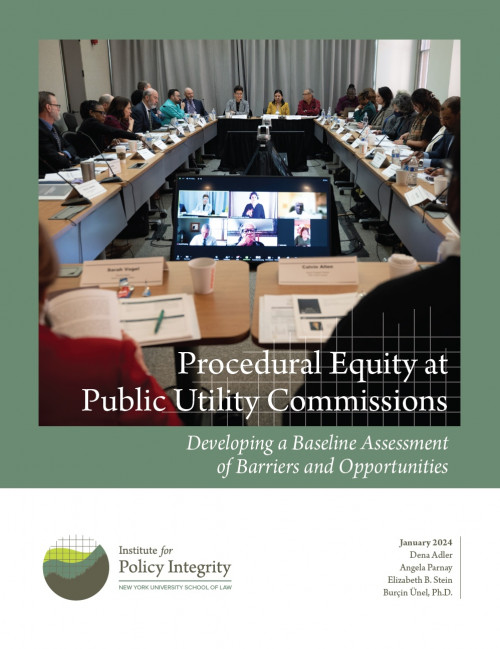
Procedural Equity at Public Utility Commissions
Developing a Baseline Assessment of Barriers and Opportunities
Combatting climate change will require major transitions in the energy sector. In the United States, state-level entities like public utility commissions play a key role in this transition. Commissions help decide where and when clean energy displaces fossil-fuel combustion, and how costs associated with energy system investments are passed on to consumers, so their actions can affect emissions outcomes as well as the health, energy, environmental, and affordability burdens faced by disadvantaged communities. Although many Commission processes incorporate some form of stakeholder input or participation, it is often difficult for the public to participate due to the technical and complex nature of these proceedings. These challenges present a procedural justice issue. In this report, we reviewed a range of practices for enhancing procedural justice at Commissions in nine states. This review was based on a structured survey of Commissions’ websites, resources available to prospective participants, and relevant statutes and regulations.
-
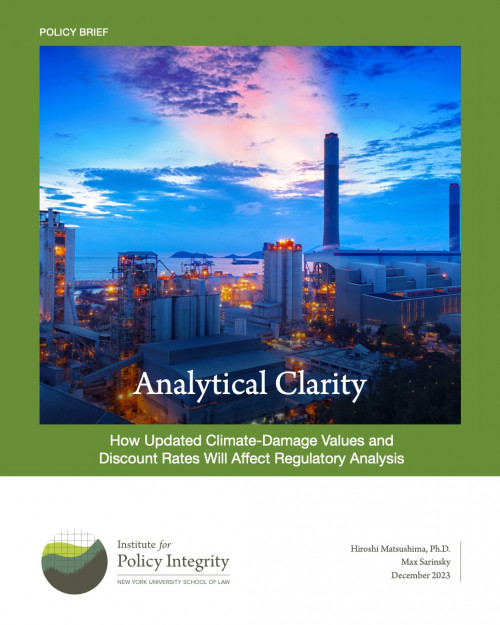
Analytical Clarity
How Updated Climate-Damage Values and Discount Rates Will Affect Regulatory Analysis
Recently completed and draft guidance is ushering in updated practices for federal benefit-cost analysis. This policy brief examines the impact of two of the most significant upcoming changes: to the discount rate and the social cost of greenhouse gases.
-
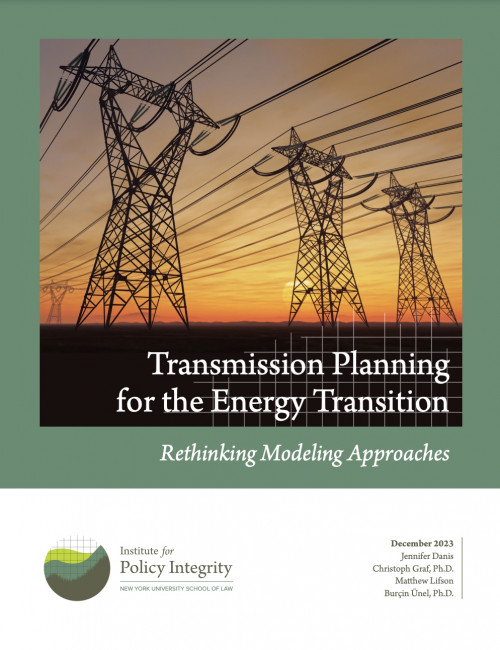
Transmission Planning for the Energy Transition
Rethinking Modeling Approaches
This report examines the critical role of modeling details and assumptions that transmission planners frequently ignore. We first provide an overview of the wide array of choices planners have when designing traditional transmission planning models. We then discuss how planners need to rethink these choices to account for the rapidly evolving energy system and the additional uncertainties climate change brings. Finally, we present a modeling case study to show how important these modeling choices could be for transmission outcomes.
-
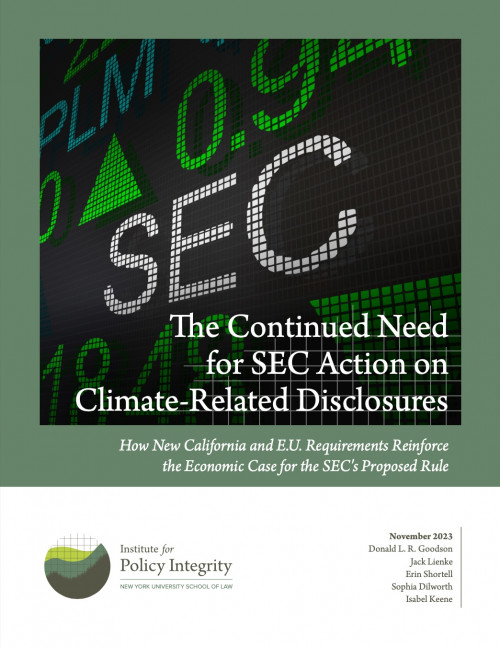
The Continued Need for SEC Action on Climate-Related Disclosures
How New California and E.U. Requirements Reinforce the Economic Case for the SEC’s Proposed Rule
On March 21, 2022, the Securities and Exchange Commission (SEC) proposed a rule that would require SEC registrants (both domestic and foreign) to provide climate-related disclosures in certain SEC filings. Since the release of the SEC Proposal in March 2022, other jurisdictions, including California and the European Union, have adopted climate-related disclosure regimes. Like many federal rules, the SEC Proposal included an assessment of its costs and benefits. This report examines how the California and E.U. disclosure regimes may affect the baseline for that cost-benefit analysis and, consequently, the SEC’s assessment of the incremental costs and benefits of its proposal. Overall, we find that the new disclosure regimes do not undermine the economic case for the SEC Proposal; if anything, they bolster it.
-
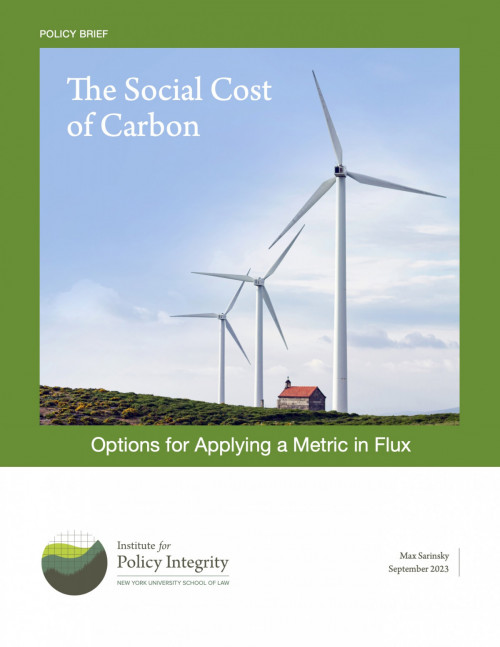
The Social Cost of Carbon
Options for Applying a Metric in Flux
Many states and other jurisdictions are grappling with how to value greenhouse gas emission reductions and trying to understand the rapidly developing climate economics and science involved in this task. Frequently, state governments and other jurisdictions value greenhouse gas emissions in policymaking using a tool known as the social cost of carbon.
While applying the social cost of carbon is conceptually simple, the appropriate value to place on the metric is in flux. In late 2022, the federal government released new, updated values of the social cost of carbon in draft form which, for now, remain unfinalized. So what estimates of the social cost of carbon should states and other entities use during this transition period? This policy brief explores the available options.
